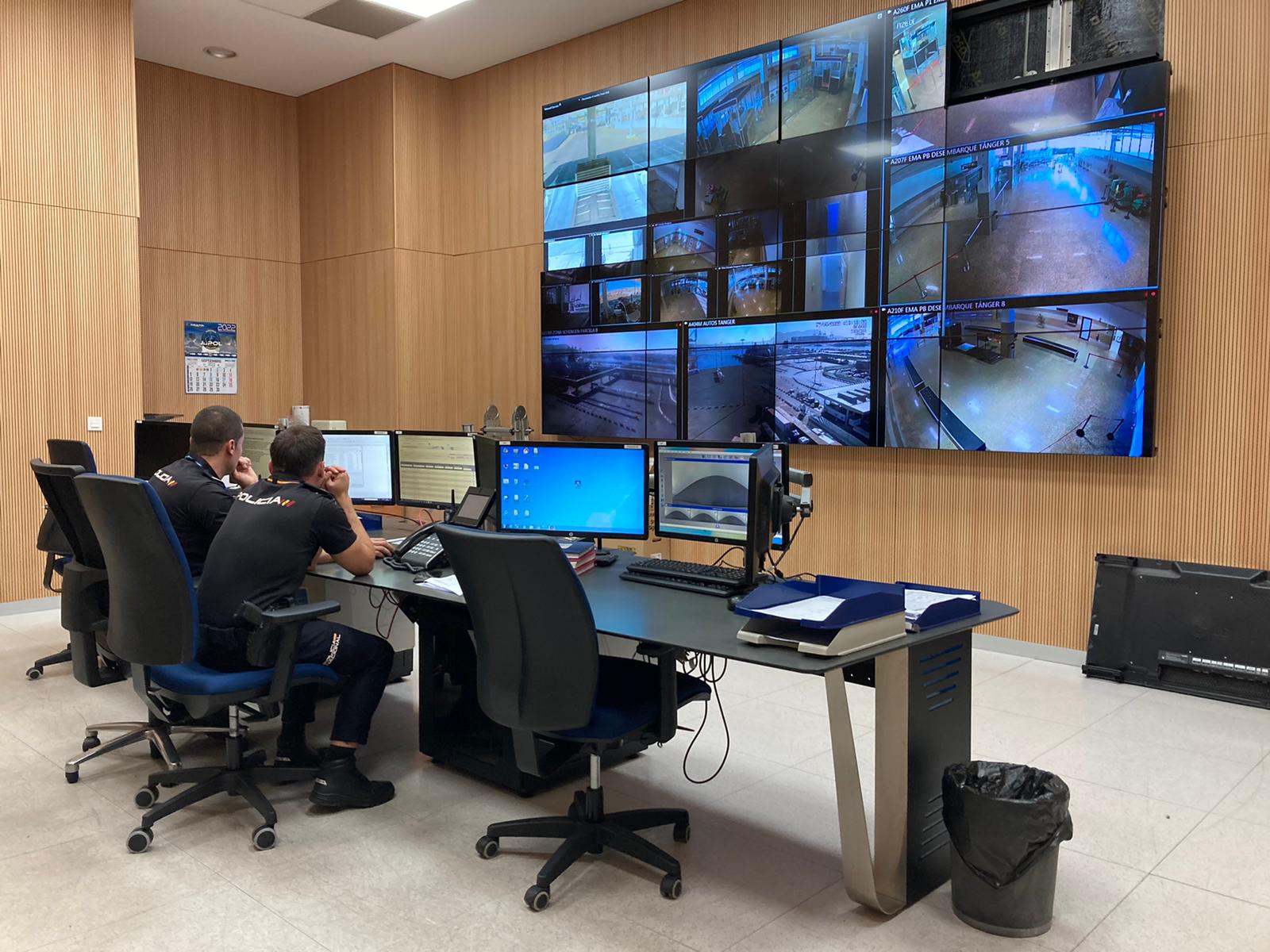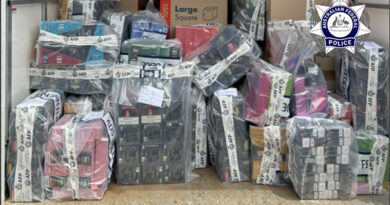Border management specialists from Colombia and Ecuador visit Spain to exchange knowledge against organized crime
Six border management specialists from Colombia and six from Ecuador have learned first-hand from their Spanish counterparts how crime is fought in Operation Paso del Estrecho, Operation Minerva and the port of Algeciras, among others
The use of new technologies to increase border security has been one of the strong points of the five-day agenda
The visit is part of a European international cooperation project with which the FIIAPP/Spanish Cooperation and the International Cooperation Division of the National Police make their knowledge and experience available to other countries, as well as that of other Spanish institutions involved in the matter
Between Monday the 5th and Friday the 9th, delegations of border experts from Colombia and Ecuador witnessed the work against cross-border crime carried out by specialized agents of the National Police of the General Immigration and Borders Commission (CGEF), the International Cooperation Division (DCI) and the Subdirectorate General for Logistics and Innovation. Likewise, the delegations have gone to the Port of Algeciras to learn first-hand about Operation Crossing the Strait (OPE) and Operation Minerva of the European agency FRONTEX, whose objectives include “contributing to the fight against cross-border crime, with special attention to human trafficking and trafficking in human beings, illicit drug trafficking or illicit vehicle trafficking, among others”. Finally,
This visit, which coincides with the week in which Cooperators’ Day (September 8) is celebrated, has been organized by EUROFRONT, a cooperation program financed by the EU and managed jointly by the FIIAPP (International and Ibero-American Foundation for Administration and Public Policies), the IILA (Organizzazione Internazionale Italo-Latinoamericana) and the IOM (International Organization for Migration). This Program has the participation of civil servants from the Spanish National Police, among other institutions.
Direct exchange of public talent
During the visit to Algeciras, the National Police inspector and EUROFRONT expert, Víctor Alfredo Suárez, warned about the global situation regarding cross-border crime and urged to strengthen cooperation: “Illegal immigration and related cross-border crimes have become It is a great source of income for the criminal groups that operate this type of crime, so it is necessary to create spaces for cooperation in which the different agents involved in immigration control can exchange data to be more efficient in the fight against these phenomena. criminals”.
In parallel, the representatives of Migrations of Colombia and Ecuador have shared the challenges and strategies of their respective countries in relation to the prevention of cross-border crime:
In the words of Andrés Rodríguez, representative of the International Cooperation Division of the Colombian Ministry of Foreign Affairs, one of the main needs of Latin America in the fight against cross-border crime is technological development: “We have seen with the EU how the efficient use of information and communication technology has led them, forgive the redundancy, to an efficiency in police and immigration management about which we are really interested in learning. It seems important to me to carry out a round of innovation in Colombia regarding what has been achieved in the Schengen area, in order to adapt this knowledge to our realities together with EUROFRONT”.
For her part, María Soledad Córdova, Ambassador of the Ecuadorian Foreign Service, has also stressed this idea of bidirectional learning between Latin America and Europe: “During this visit we have learned about the degree of unity and coordination of the EU, for example through of Operation Minerva, and I believe that Europe can also learn from the binational experience of Ecuador, both with Peru and with Colombia, on the way in which we seek to defend the victims of organized crime and reintegrate them into society. .
A regional look to address cross-border crime
This exchange of knowledge carried out between regions is part of the methodology implemented by EUROFRONT. This program develops its action with seven partner countries in a national dimension, but pays special attention to the promotion of the regional dimension, facilitating collective work between countries, the production of common tools and work in alliances and supranational networks.
It is not the first activity of the program that delves into the issue of fighting crime. Already in July of this year, the program team traveled to Paraguay to hold a conference against drug trafficking, in which a series of recommendations were drawn up to make investigations against this crime more efficient and which will be published in the coming weeks. by the EUROFRONT, PAcCTO and COPOLAD programmes.





